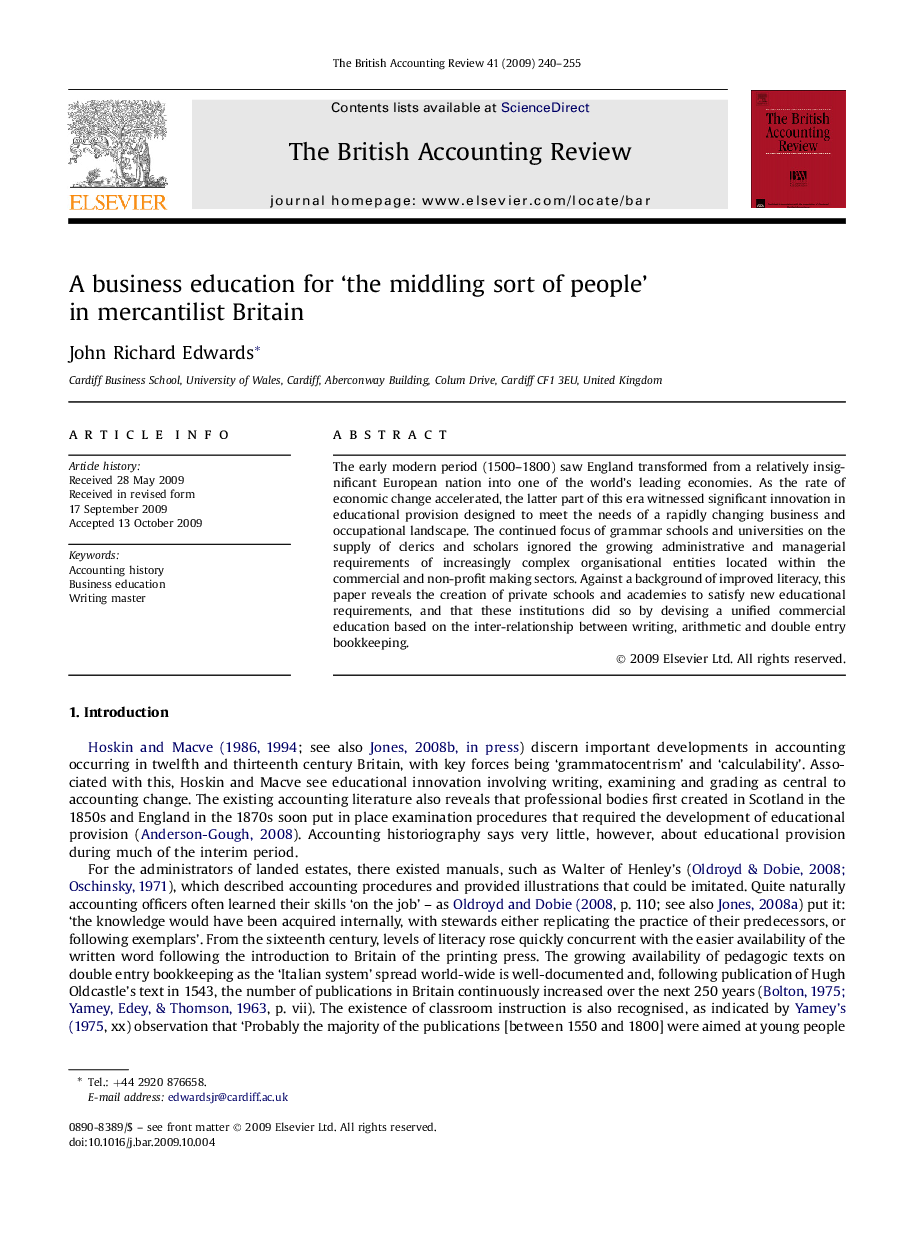| Article ID | Journal | Published Year | Pages | File Type |
|---|---|---|---|---|
| 1004109 | The British Accounting Review | 2009 | 16 Pages |
The early modern period (1500–1800) saw England transformed from a relatively insignificant European nation into one of the world's leading economies. As the rate of economic change accelerated, the latter part of this era witnessed significant innovation in educational provision designed to meet the needs of a rapidly changing business and occupational landscape. The continued focus of grammar schools and universities on the supply of clerics and scholars ignored the growing administrative and managerial requirements of increasingly complex organisational entities located within the commercial and non-profit making sectors. Against a background of improved literacy, this paper reveals the creation of private schools and academies to satisfy new educational requirements, and that these institutions did so by devising a unified commercial education based on the inter-relationship between writing, arithmetic and double entry bookkeeping.
